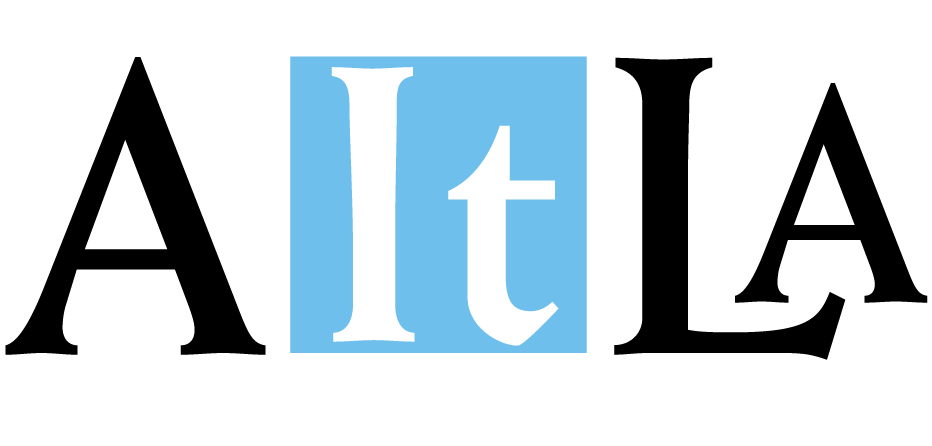
LREC-COLING 2024
The 2024 Joint International Conference on Computational Linguistics, Language Resources and Evaluation
Lingotto Conference Centre - Torino (Italy)
https://lrec-coling-2024.lrec-conf.org/
20-25 May, 2024
Two international key players in the area of computational linguistics, the ELRA Language Resources Association (ELRA) and the International Committee on Computational Linguistics (ICCL), are joining forces to organize the 2024 Joint International Conference on Computational Linguistics, Language Resources and Evaluation (LREC-COLING 2024) to be held in Torino, Italy on 20-25 May, 2024.
IMPORTANT DATES
(All deadlines are 11:59PM UTC-12:00 (“anywhere on Earth”)
· 22 September 2023: Paper anonymity period starts
· 13 October 2023: Final submissions due (long, short and position papers)
· 13 October 2023: Workshop/Tutorial proposal submissions due
· 22–29 January 2024: Author rebuttal period
· 5 February 2024: Final reviewing
· 19 February 2024: Notification of acceptance
· 25 March 2024: Camera-ready due
· 20-25 May 2024: LREC-COLING2024 conference
SUBMISSION TOPICS
LREC-COLING 2024 invites the submission of long and short papers featuring substantial, original, and unpublished research in all aspects of natural language and computation, language resources (LRs) and evaluation, including spoken and sign language and multimodal interaction. Submissions are invited in five broad categories: (i) theories, algorithms, and models, (ii) NLP applications, (iii) language resources, (iv) NLP evaluation and (v) topics of general interest. Submissions that span multiple categories are particularly welcome.
(i) Theories, algorithms, and models
· Discourse and Pragmatics
· Explainability and Interpretability of Large Language Models
· Language Modeling
· CL/NLP and Linguistic Theories
· CL/NLP for Cognitive Modeling and Psycholinguistics
· Machine Learning for CL/NLP
· Morphology and Word Segmentation
· Semantics
· Tagging, Chunking, Syntax and Parsing
· Textual Inference
(ii) NLP applications
· Applications (including BioNLP and eHealth, NLP for legal purposes, NLP for Social Media and Journalism, etc.)
· Dialogue and Interactive Systems
· Document Classification, Topic Modeling, Information Retrieval and Cross-Lingual Retrieval
· Information Extraction, Text Mining, and Knowledge Graph Derivation from Texts
· Machine Translation for Spoken/Written/Sign Languages, and Translation Aids
· Sentiment Analysis, Opinion and Argument Mining
· Speech Recognition/Synthesis and Spoken Language Understanding
· Natural Language Generation, Summarization and Simplification
· Question Answering
· Offensive Speech Detection and Analysis
· Vision, Robotics, Multimodal and Grounded Language Acquisition
(iii) Language resource design, creation, and use: text, speech, sign, gesture, image, in single or multimodal/multimedia data
· Guidelines, standards, best practices and models for LRs, interoperability
· Methodologies and tools for LRs construction, annotation, and acquisition
· Ontologies, terminology and knowledge representation
· LRs and Semantic Web (including Linked Data, Knowledge Graphs, etc.)
· LRs and Crowdsourcing
· Metadata for LRs and semantic/content mark-up
· LRs in systems and applications such as information extraction, information retrieval, audio-visual and multimedia search, speech dictation, meeting transcription, Computer-Aided Language Learning, training and education, mobile communication, machine translation, speech translation, summarisation, semantic search, text mining, inferencing, reasoning, sentiment analysis/opinion mining, (speech-based) dialogue systems, natural language and multimodal/multisensory interactions, chatbots, voice-activated services, etc.
· Use of (multilingual) LRs in various fields of application like e-government, e-participation, e-culture, e-health, mobile applications, digital humanities, social sciences, etc.
· LRs in the age of deep neural networks
· Open, linked and shared data and tools, open and collaborative architectures
· Bias in language resources
· User needs, LT for accessibility
(iv) NLP evaluation methodologies
· NLP evaluation methodologies, protocols and measures
· Benchmarking of systems and products
· Evaluation metrics in Machine Learning
· Usability evaluation of HLT-based user interfaces and dialogue systems
· User satisfaction evaluation
(v) Topics of general interest
· Multilingual issues, language coverage and diversity, less-resourced languages
· Replicability and reproducibility issues
· Organisational, economical, ethical and legal issues
· Priorities, perspectives, strategies in national and international policies
· International and national activities, projects and initiatives
LREC-COLING 2024 invites high-quality submissions written in English. Submissions of three forms of papers will be considered:
A. Regular long papers - up to eight (8) pages maximum*, presenting substantial, original, completed, and unpublished work.
B. Short papers - up to four (4) pages*, describing a small focused contribution, negative results, system demonstrations, etc.
C. Position papers - up to eight (8) pages*, discussing key hot topics, challenges and open issues, as well as cross-fertilization between computational linguistics and other disciplines.
* Excluding any number of additional pages for references, ethical consideration, conflict-of-interest, as well as data and code availability statements.
Appendices or supplementary material will be allowed ONLY in the final, camera-ready version, but not during submission, as papers should be reviewed without the need to refer to any supplementary materials.
Linguistic examples, if any, should be presented in the original language but also glossed into English to allow accessibility for a broader audience.
Note that paper types are decisions made orthogonal to the eventual, final form of presentation (i.e., oral versus poster).
